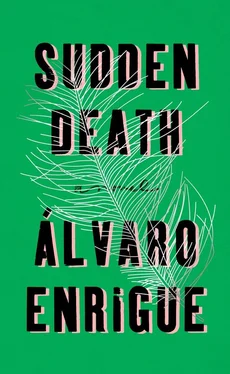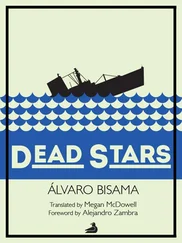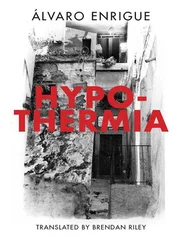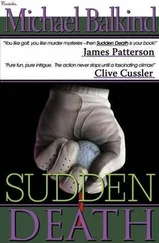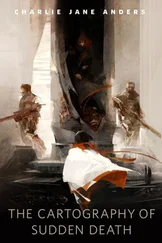Let’s not leave him alone as the inferno licks at his silk slippers. With him, naturally, is Carlo Borromeo, the ideologue and publicist par excellence of the Counter-Reformation, and Montalto, the inquisitor who executed it in blood and fire.
Montalto would rise to the papacy as Sixtus V — a backward name, which is perhaps why he was granted a nickname for the ages: the Iron Pope. Borromeo didn’t have the imperial gravitas of his interlocutors, but he was the éminence grise behind Pius IV and Gregory XIII. He died young and was raised to sainthood immediately upon his death. His body is buried under the presbytery of the cathedral of Milan in what is today the Scurolo di San Carlo, in a sarcophagus of rock crystal like Snow White’s. His creepy mummified body — a little black masked thing, covered in gems and robes — can still be seen for the price of two euros.
In order for the three cardinals to be gathered in an ideal portrait of Pius IV watching the blaze, a reason must be concocted here. The pope, for example, knowing that Borromeo was away from Milan on a business trip to the Vatican, might have invited him to report on how the city was recovering from the plague. Montalto, attending to practical matters with the pope, might have stayed for dinner with them.
Or it might be Borromeo who had invited the pontiff and the inquisitor to a private conclave at the loggia of the Palazzo Colonna, the official residence of the Milanese nobility in the papal city. A secret, breakaway conclave of three men who, though on different courses, had found common cause at Trent when they articulated the shape of the Baroque century to come. They were brothers-in-arms.
If the meeting were to happen in 1565—when Spain took possession of the Philippines and the world at last became round as a tennis ball — Pius IV, the oldest of the three, would be feeling the call of death in his bones, his Lombard eyes fading from their customary placid blue to the transparent color that allows the passage of visions. This, then, would be the last private meeting of the three men. The pope is sixty-six, his beard white, his breathing labored from the excess weight visited on him by the satisfaction of his wants. Carlo Borromeo is twenty-seven: gaunt, wiry, with the long, poorly shaven face of an El Greco model. Cardinal Montalto, all-powerful inquisitor with too many scores pending, is at the brutal crossroads of forty-five: too old for everything, too young for everything. During the meeting he’ll learn that when Pius dies he’ll be left out in the cold because he’s been working so hard to hang, draw, and quarter half of Europe that he hasn’t developed the political relationships in the Roman Curia to survive the papal change of guard.
In this ideal portrait of Pius IV looking out over the conflagration with his brothers-in-arms, the three are in good humor, in a mood to render judgment. They sit on the slope of the Esquiline Hill, in the loggia of the garden of the Palazzo Colonna, watching Rome from the spot where in the sixteenth century the ruins of a Roman temple still stood, the temple from which Nero watched the city burn. The three men are on the terrace, spellbound by the dancing of the flames; servants and guards among the toppled ivy-covered columns, the vegetation exuding its oils in something like a futile last stand against the blaze of the Counter-Reformation, which in the end will lay waste to everything.

On March 14, 1618, Quevedo wrote a letter to Pedro Téllez Girón in which he described in minute and cruel detail the greed with which the duke of Uceda, the king’s favorite, had received a bribe. Quevedo says that the people at the Palace of Uceda were so miserly and so quick to snatch up any small dispensation that they didn’t even return his packing materials: “Even the cotton was not scorned, being used for candlewicks.” A use was also found for the boxes in which the gifts came: “The wooden boxes in which everything was packed thought to escape notice, being flawed, but when it was discovered that they were made of poplar, with great celebration they were shared out to be used for tennis rackets.”
On Names, and the Troubled History and Politics of How Things Are Named

Living in Mexico had become a source of more anxiety than pleasure when I moved to New York. My reason for leaving is still hard to put into words, but it has something to do with a problem of nomenclature.
Back home we stopped calling things by their names long ago, and now, as the serpent heads of our plumed Hydra multiply endlessly, we’re left without the spell to counter their poison.
Mexican Spanish, at times so disconcerting and easy to misinterpret, gets its warmth and courtesy from Nahuatl: the gentlest and most gracious of tongues; an airy, birdlike form of speech. When someone from Madrid or Montevideo walks into a room, he says, “Permiso,” and that’s it. In contrast, a Mexican erects a syntactic edifice so complicated that it requires both a negative clause and a verb in the conditional: “If it’s no trouble, might I come in?” If the game recounted in these pages had been played in sixteenth-century Mexico, and if Hernán Cortés had invited the emperor Moctezuma to have it out on the court as Charles V and Henry VIII used to do, they wouldn’t have rudely shouted “Tenez!” but would have said, “Excuse the service, please.”
According to Nahuatl etiquette, the polite way to address a person is with the diminutive tzin . The pre-Hispanic name of the Virgin of Guadalupe was Tonantli, or Our Mother, but no one ever called her that, then or now. She was — and still is — Tonantzin, Our Little Mother. In Spanish we refer to her as La Virgen, but when the faithful petition her for something and address her directly, they call her Virgencita. It’s not that they’re sappier or more sentimental than other Spanish speakers; it’s just that Mexican Spanish is crisscrossed with the scars of Nahuatl. In our mental hard drives, the file of the mother tongue still opens at certain prompts, even though it’s been two or three hundred years since we spoke it.
It’s still hard to believe that during the sixteenth century, there was an enormous empire, governed by an extraordinarily bloodthirsty ruling class, whose prince was addressed as a child: Tizoctzin, Ahuizotzin, Moctezumoctzin. This practice is bizarre and seductive, and I think it’s crucial to make note of it, because it’s still alive today: the bandit and killer Joaquín Guzmán is called Chapo, or Shorty. No one calls the president by a diminutive anymore, but I’m not sure there has been an incumbent of that office who deserved it either. Maybe a diminutive is something one earns. The only twentieth-century president who was truly loved by the people, Lázaro Cárdenas, was called Tata, “Grandpa” in Nahuatl.
Full disclosure: If you are reading this page, you are reading a translation. In some languages, readers don’t flinch as the emperor Cuauhtémoc becomes Cuauhtemoctzin, Guatémuz, or Guatemotzin, depending on who is speaking to him and in what context. In other languages, the mutating names seem to throw readers into a state of confusion. I’m not sorry about that: a whole vision of the universe would be lost if Malinalli Tenépatl, the Mayan princess who was Hernán Cortés’s translator, didn’t refer to Cuauhtémoc as Cuauhtemoctzin. Something would also be lost if it weren’t recorded that Hernán Cortés — who was either very arrogant or very deaf — called the emperor by the hideous name of Guatémuz, which was what he heard and then set down in his letters to Charles V. I don’t know — and it’s impossible to know, of course — whether Cortés ever called him Guatemotzin, as he does in this book when he’s trying to be diplomatic, but the function of a novel is precisely that: to name what is lost, to replace the void with an imaginary archive.
Читать дальше
